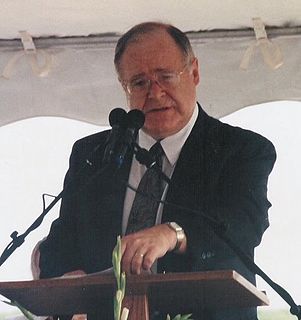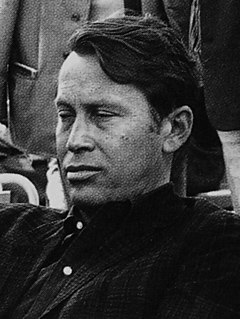A Quote by George Edward Woodberry
Who of English speech, bred to the traditions of his race, does not recognize Hamlet in his 'inky cloak' at a glance? Not to know him would argue one's self untaught in the chief glories of his language.
Related Quotes
When a man sought knowledge, it would not be long before it could be seen in his humbleness, his sight, upon his tongue and his hands, in his prayer, in his speech and in his disinterest (zuhd) in worldly allurements. And a man would acquire a portion of knowledge and put it into practice, and it would be better for him than the world and all it contains - if he owned it he would give it in exchange for the hereafter.
We [Americans] know Martin Luther King Jr. as a statue. We know him as a holiday. We know him as a speech. We don't know him as a man. Most people don't even know the whole speech, just "I have a dream." They don't know what his speaking voice was like, how he looked at his wife, or that he had four kids.
The Landlord is a gentleman who does not earn his wealth. He has a host of agents and clerks that receive for him. He does not even take the trouble to spend his wealth. He has a host of people around him to do the actual spending. He never sees it until he comes to enjoy it. His sole function, his chief pride, is the stately consumption of wealth produced by others.
I finish where I began: Jesus' statement "Come and see" provides both an invitation and a promise to all people everywhere. Come to Him; see Him as King of Kings and Lord of Lords; recognize in Him the great Messiah who will come again with healing in His wings, to set His people free. He will wrap you about in the cloak of His redeeming love, and your life will be changed forever.
Hardly ever can a youth transferred to the society of his betters unlearn the nasality and other vices of speech bred in him by the associations of his growing years. Hardly ever, indeed, no matter how much money there be in his pocket, can he ever learn to dress like a gentleman-born. The merchants offer their wares as eagerly to him as to the veriest swell, but he simply cannot buy the right things.
The master in the art of living makes little distinction between his work and his play, his labor and his leisure, his mind and his body, his information and his recreation, his love and his religion. He hardly knows which is which. He simply pursues his vision of excellence at whatever he does, leaving others to decide whether he is working or playing. To him he's always doing both.
In nothing does man, with his grand notions of heaven and charity, show forth his innate, low-bred, wild animalism more clearly than in his treatment of his brother beasts. From the shepherd with his lambs to the red-handed hunter, it is the same; no recognition of rights - only murder in one form or another.
One of the things I love about translation is it obliterates the self. When I'm trying to figure out what Tu Fu has to say, I have to kind of impersonate Tu Fu. I have to take on, if you will, his voice and his skin in English, and I have to try to get as deeply into the poem as possible. I'm not trying to make an equivalent poem in English, which can't be done because our language can't accommodate the kind of metaphors within metaphors the Chinese written language can, and often does, contain.
While people argue with one another about the specifics of Freud's work and blame him for the prejudices of his time, they overlook the fundamental truth of his writing, his grand humility: that we frequently do not know our own motivations in life and are prisoners to what we cannot understand. We can recognize only a small fragment of our own, and an even smaller fragment of anyone else's, impetus.




































